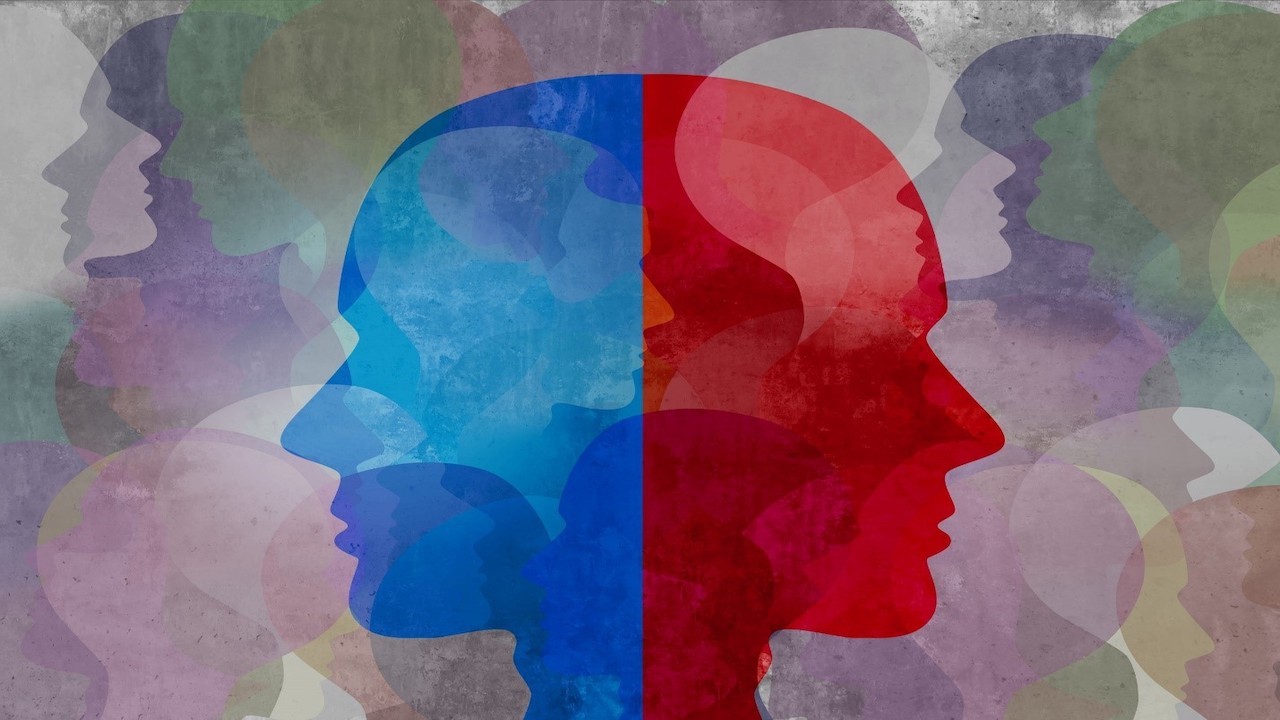One of our AlliesinRecovery.net members as been artfully following the CRAFT principles and yet her loved one is not showing signs of improvement. Engaging in extreme behavior, barely ever sleeping, misusing his ADHD medication, lying, and now, stealing… Is it all on the addiction or could her partner suffer from an underlying, undiagnosed and untreated mental health condition?
“First off, I have to say the free group and this whole website – I can’t say how lost I would be without this site. I read Beyond Addiction by Foote and the gang, and Get Your Loved One Sober by Meyers in 2016 or so, but the exercises on the [Allies in Recovery] website and the chance to have personalized feedback have brought my understanding to a whole new level. So, the situation continues to spiral out of control, and it almost seems to me like this is what he wants? Re: strange being awake from Friday to Monday (without any stimulant use that I can see, he simply does not take his night meds and rides the ADHD hyper focus) … he just plays video games and needs “alone time”…I suspect this is also when he uses, since all he has 7 days a week during the day is alone time. I have no proof though, just my gut instinct, and I think what little money he can scrounge up maybe he has marijuana for weekends only. Anyway, some natural consequences of this habit finally happened…”
[This question first appeared on the AlliesinRecovery.net Member Discussion Blog.]
Your comments paint a detailed and worrying picture. Your “whole new level” of CRAFT (thanks so much for the kudos!) is inspiring to the entire team. We are deeply moved by your steadfast efforts to help your loved one. You have been applying CRAFT to a T (or as best as any of us could), yet you are not seeing signs of improvement in your loved one. It feels like he’s been spiraling downward, rather consistently.
CRAFT can work miracles, yet has its own weak spots
We have given your situation careful consideration and it has taken us some time to put this post together. We also wanted to speak with an experienced counselor to get a view of what may be going on with your partner. We asked Dr. John Fitzgerald, who regularly intervenes as a guest expert for us, to weigh in.
Dr. Fitzgerald emphasizes the need for a good psychiatric evaluation
“My summary answer is that he needs a good psychiatric evaluation, because it seems like he may have a spectrum mood disorder (Bipolar II). If he can go for four days without sleep (off drugs), that suggests hypomania. He has other indicators that point towards mood disorder: depression, lack of motivation, significant sleep problems, being intelligent, abusing substances, lack of self-care (not being able to cook for himself) and self-isolation (no phone). I would want to know his age, family history of mood disorders (were mom or dad bipolar?), when the symptoms first began showing up, and what happens when he takes a selective serotonin reuptake inhibitor (SSRI) like Lexapro, Prozac or Zoloft[1] (usually makes people with mood disorders worse — can lead to manic episodes). Has he ever gone without sleep for 7 or more days? In this case, we’d be looking at Bipolar I disorder.
Here is a great resource on the topic: https://psycheducation.org/ (check out the many great pages on this site).
Your partner is clearly stuck, feels shame, and may also suffer from insecure attachment, adverse childhood events (ACE), and trauma, which would all complicate the clinical picture even more…”
When addiction is masking other, undiagnosed problems
Dr. Fitzgerald continues: “… I have never really given much thought to how in some cases — perhaps like this — CRAFT needs to be practiced with the understanding that addiction is an adaptive response to underlying (unidentified and untreated) drivers. When a concerned significant other (CSO, aka the family member or significant other) starts using the tools without appreciating that the person engaging in addiction does so because no one has ever accurately diagnosed their underlying problem(s), I can see where things get worse for both parties. There is an assumption built into CRAFT that the “primary problem” is addiction, when in fact it most often is an adaptive response to something else. When that “something else” goes untreated, outcomes will not be good.
Also, it’s important to note that even when a CSO gets their loved one to attend addiction treatment, we know that often clinicians who work in the addiction field are ill-trained to assess attachment, trauma and, in particular, spectrum mood disorders. So, a person can do fairly well in addiction treatment with all the supports, and actually look better than they are because the mood stuff takes a break. But once home, the mood cycles come back, the CSO blames continued problems on relapse and addiction, and the cycle continues. It’s a complex and tricky subject. We need to continue to provide people the tools to see deeper into the nature of their suffering.”
Could this also be misuse of psychological medications?
I have seen the effects of misusing ADHD medications. It provokes over-focusing and obsessive behavior. The person sleeps very irregularly, and only after days of staying up. They appear highly disorganized, irritable, even psychotic. In the situation I am thinking about, the young man worked on miniature military formations for days on end. You’ll find this young man’s story in the AlliesinRecovery.net eLearning Module 2 “How Do I Stay Safe?”
I started digging into the Vyvanse misuse, and some people report that this relatively new ADHD drug can have unintended psychological side effects. When misusing it, one crushes and snorts the drug, thereby getting more of the drug immediately, despite its being long-acting. He may also be withdrawing from the drug, as he would be running out quickly.
He could be feeling the effects of withdrawing from his antidepressant medication. These withdrawals can be quite serious, especially if he didn’t carefully titrate the dose down over an extended period of time. The psycho-pharmacological effects of misuse or withdrawal can vary from person to person, but there is no doubt they can be severe and look like what your partner is going through.
By now, several days have gone by and your situation may have changed. Getting your loved one a good psychiatric evaluation is not going to be easy. Our AlliesinRecovery.net eLearning Module 8, “How Do I Get My Loved One Into Treatment?” lays out how to engage your partner.
You’ve been practicing CRAFT, so you know some of the important elements, like:
- Creating a bridge between you and your loved one, while using reflective listening and positive reinforcement (how to do this is outlined in our eLearning Modules);
- Waiting for an important opening – what we call a “wish” or a “dip” — to suggest an evaluation or counseling;
- Have the information for contacting a counselor or psychiatrist ready for these moments;
- Or try a “planned conversation,” with the options ready.
Can his previous treatment center help more?
I wonder if the inpatient center he attended can help more. Yes, ideally he needs to show some initiative and call the center, but that is very hard to do when you’re running scared or hiding in the basement. Can you call the most senior person you can reach at the center and get them to be more helpful? They could perhaps initiate a ZOOM call with him as an aftercare follow-up. As part of his aftercare, they really should be in regular touch with him – particularly if they were the ones to prescribe the new medications as they have an ethical responsibility to follow up with the patient to see how the induction period is going. Ideally, of course, he should make the call, but he has become so decompensated[2] that he most likely can’t handle the responsibility.
You describe the way his behavior has been rapidly evolving over the last weeks. He is now stealing a little money to buy alcohol and/or marijuana. Before this goes further, can you:
1) Talk to the clinic;
2) Call the local crisis help-line for guidance and for possible mental health treatments and retreats.
For example, in Western Massachusetts you can call: 413-733-6661. I searched “crisis mental health call center,” along with my location, to find this number. They are open 24/7. If you can’t find anything specific to your area, you can call the SAMHSA’s (Substance Abuse Mental Health Services Administration) “free, confidential, 24/7, 365-day-a-year treatment referral and information service (in English and Spanish) for individuals and families facing mental and/or substance use disorders” at (800) 662-HELP (4357).
3) Sit down with him to gently express how much you love him and how much this situation worries you.
Script it out if it can help you stay calm and focused on the message you are trying to get across.
Put the debit card receipts for beer in front of him, along with coffee, cake and ice cream if possible (you come in peace).
Here are some sample statements that you can work from:
“I love you and I admire you. Things are bad right now. I don’t know what else I can do to help you. I can’t live this way much longer. Please tell me what your plans are for the next couple weeks.”
“I am very worried. I have the number of the psychiatrist who prescribed you the drugs and he is willing to talk to you.”
“Here is what I got back from a site that is helping me cope with my end of things…”
Only try this last option if you think it can help. If he is more likely to get upset because you shared about what he has been struggling with, don’t even go there.
Avoid the common traps: No matter what else is at work, substance misuse is a surefire source of nastiness
You have made many great observations about how you’re engaging or withdrawing, and how he takes it (usually, badly). He’s familiar with CRAFT principles and doesn’t appreciate your withdrawing when you do so. It feels to both of you like the “ultimate big chill” because when you step away, you aren’t being warm. He takes it very personally.
I just want to take this opportunity to point out that substance addiction is one of the best predictors of not-nice behavior. As we’ve pointed out earlier in this post, there may also be undiagnosed mood or mental disorders at play that are exacerbating everything. But please remember that — as long as he is using/withdrawing more or less constantly — everything he says is infused with the ever-bitter communications cocktail that so often accompanies SUD: denial + blaming + accusations + paranoia + manipulation, etc.
When you’re being addressed like that, it’s OK to acknowledge that you hear him (maybe a bit of reflective listening) but it’s almost never useful or productive to actually respond with your own thoughts/concerns at that point. Disengage as swiftly as you see fit when the tone is so ugly.
Also, as much as he makes you feel like everything you’re doing or attempting to do for him is wrong, YOU.ARE.STILL.THE.REWARD.
We salute you and your “militant” level of self-care
It’s music to our ears to hear that you are taking your self-care so seriously.
Is there a way for you to extend, or multiply, your outings? When he’s making your life unbearable, can you make a point of taking an extra walk at that moment? Can you take your laptop and find another place to work? (A friend’s place? A safe public place like a coffee shop or a library? Your car?) COVID has made this extra complicated and your health concerns must be taken into consideration, but it could make more of an impression if you were to take more frequent and/or longer breathers.
When he complains you’re punishing him, try to put it back on yourself and point to your needs, which he clearly isn’t able to focus on right now:
“I need to take some time for myself…” or “I need to take a breather” or “I’m going to take a walk and decompress for a while“
I also wanted to make sure that your own support system is as strong as it can be? Aside from the guidance and support you receive through Allies, could you maybe add in some one-on-one counseling or a regular full-body massage (etc.) We worry about your own health, despite all that you’re doing to compensate for the stress.
I feel both for your partner and for you. He sounds caught and you are left having to figure everything out for him. We hope this helps you gain additional clarity. We want you to know that you are not alone. We are here to support you.
Thank you for writing in, please keep us in the loop!
[1] Selective Serotonin Reuptake Inhibitors, Chu A, Wadhwa R. [Updated 2020 Feb 15]. In: StatPearls [Internet]. Treasure Island (FL): StatPearls Publishing; 2020 Jan-.
[2] To decompensate means to lose the ability to maintain one’s state of mental health, typically due to some kind of stress. The word decompensate is most often applied to someone who is having a breakdown in their mental health mechanisms, especially someone who has an existing mental illness or psychological condition. dictionary.com



